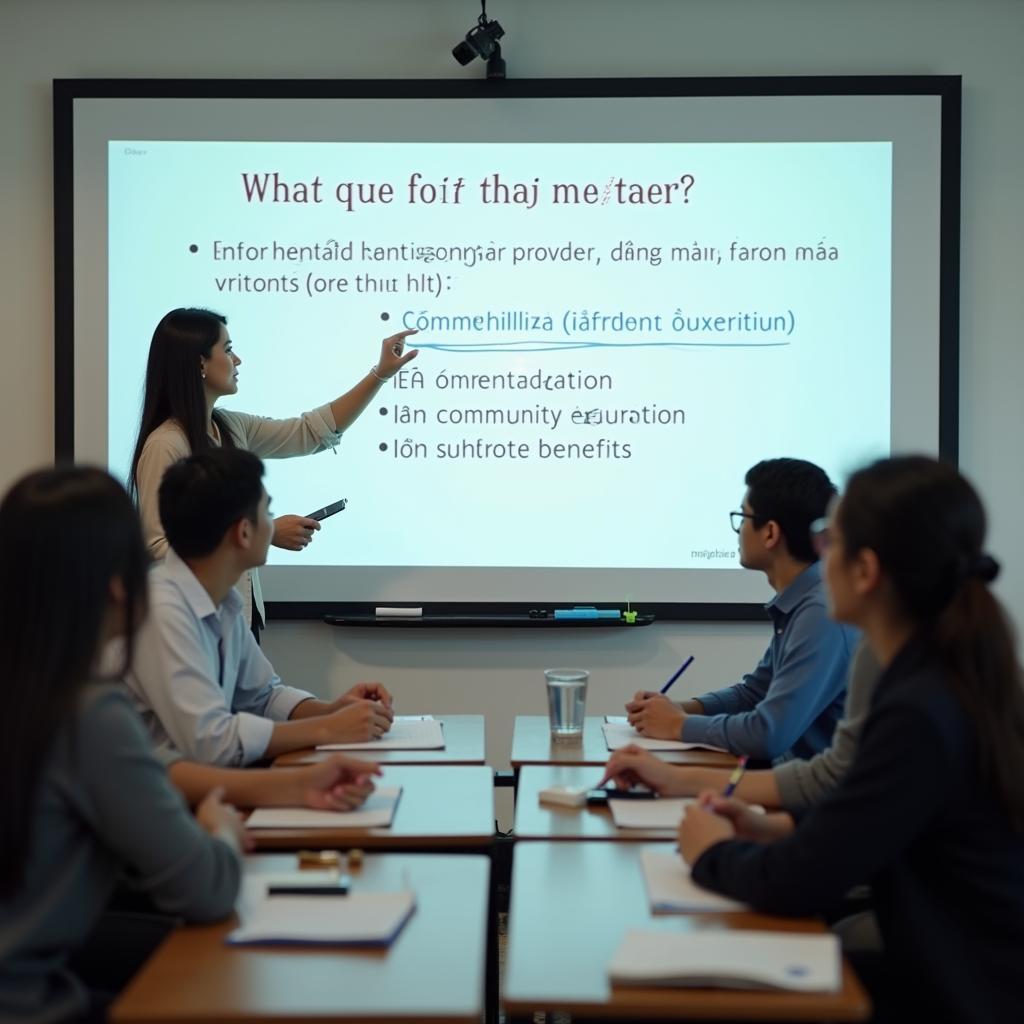Mở bài
Chủ đề Importance Of Maintaining Traditional Practices xuất hiện đều đặn trong IELTS Writing Task 2, thường xoay quanh bảo tồn văn hóa trong bối cảnh toàn cầu hóa, du lịch, thương mại hóa và hiện đại hóa. Bài viết này giúp bạn nắm vững ba điều: cách phân tích đề đúng hướng, ba bài mẫu Band 5-6, 6.5-7 và 8-9 (kèm phân tích chấm điểm chi tiết), cùng bộ từ vựng và cấu trúc “ăn điểm” theo tiêu chí chính thức của IELTS. Bạn cũng sẽ nhận được checklist tự đánh giá, lộ trình cải thiện và mẹo quản lý thời gian.
Một số đề thi thực tế đã được xác minh từ nguồn uy tín:
- IELTS Liz (Culture Essay Questions): “Some people think that cultural traditions will be destroyed when they are used as money-making machines; others believe this is the only way to save such traditions. Discuss both views and give your own opinion.”
- IELTS-Blog (đề thi thật được thí sinh báo cáo): “In many countries, traditional customs are becoming less important as a result of globalization. To what extent do you agree or disagree?”
- IDP/British Council (chủ đề Culture & Tourism thường gặp): “Traditional foods are being replaced by fast food. Some people think this has a negative effect on families and society. To what extent do you agree or disagree?”
Trong bài, tôi chọn đề phổ biến và sát chủ đề “duy trì truyền thống” để phân tích chuyên sâu, kèm chiến lược, lỗi thường gặp của học viên Việt Nam, và bài viết mẫu theo chuẩn chấm điểm band descriptors.
1. Đề Writing Part 2
Some people think that cultural traditions will be destroyed when they are turned into money-making attractions for tourists; others believe this is the only way to save such traditions in the modern world. Discuss both views and give your own opinion.
Dịch đề: Một số người cho rằng các truyền thống văn hóa sẽ bị phá hủy khi biến chúng thành sản phẩm kiếm tiền từ khách du lịch; số khác tin rằng đó là cách duy nhất để cứu các truyền thống ấy trong thế giới hiện đại. Thảo luận cả hai quan điểm và nêu ý kiến của bạn.
Phân tích đề bài:
- Dạng câu hỏi: Discuss both views and give your own opinion. Bạn phải trình bày hai quan điểm, đánh giá và nêu rõ lập trường.
- Thuật ngữ quan trọng:
- “money-making attractions”: hoạt động thương mại hóa hướng đến lợi nhuận.
- “save such traditions”: bảo tồn thực chất (sống được, có người truyền nối) chứ không chỉ “trưng bày”.
- Lỗi thường gặp:
- Chỉ viết một phía, thiếu cân bằng lập luận.
- Lẫn lộn giữa “bảo tồn” (preserve, safeguard) và “quảng bá” (promote).
- Ví dụ chung chung, không chỉ ra cơ chế tác động (ai được lợi, rủi ro là gì).
- Sai mạo từ a/an/the; lạm dụng từ “nowadays”, “in the modern society”.
- Cách tiếp cận chiến lược:
- Mở bài: paraphrase + nêu rõ sẽ bàn cả hai phía và quan điểm cá nhân.
- Thân bài 1: Rủi ro thương mại hóa (mất tính xác thực, “Disneyfication”, tách cộng đồng).
- Thân bài 2: Lợi ích thực tế (nguồn quỹ bền vững, truyền nghề, chính sách bảo vệ).
- Kết bài: Lập trường cân bằng: thương mại có điều kiện (community-led, safeguards).
 Chu-de importance of maintaining traditional practices trong IELTS Writing Task 2
Chu-de importance of maintaining traditional practices trong IELTS Writing Task 2
2. Bài mẫu Band 8-9
Đặc điểm: Luận điểm sắc sảo, cân bằng; ví dụ cụ thể; từ vựng học thuật chính xác; logic mạch lạc; ngữ pháp đa dạng và tự nhiên.
Essay (≈300 words):
While critics warn that turning culture into business inevitably corrupts it, others argue that commercialisation is the most realistic lifeline for endangered traditions. I adopt a nuanced stance: market forces can erode authenticity, yet, with community control and clear safeguards, tourism revenue can make preservation viable rather than performative.
On the one hand, unregulated money-making often commodifies practices into Disneyfied spectacles. Ceremonies may be shortened, symbols simplified, and costumes stylised to satisfy attention spans and camera lenses. Such tailoring, while profitable, risks severing rituals from their social fabric, reducing meaning to aesthetics. Moreover, benefits frequently bypass custodians: when external operators capture most profits, practitioners become mere employees of their own heritage, a dynamic that accelerates cultural erosion rather than renewal.
On the other hand, principled commercial models can finance continuity. In Vietnam, community-led water puppetry troupes that reinvest ticket sales into apprenticeships demonstrate how income sustains training time, materials, and intergenerational transmission. Likewise, UNESCO’s emphasis on safeguarding “intangible heritage” encourages frameworks—licensing, profit-sharing, and curatorial oversight—ensuring that tourism amplifies rather than distorts tradition. Crucially, when practitioners retain decision-making power over repertoire, pace, and setting, the market becomes a servant to culture, not its master.
In my view, the debate is misframed as a binary. The real distinction lies between extractive commercialisation and community-governed enterprise. The former hollows out meaning; the latter underwrites authenticity by paying for time, skill, and dignity. Therefore, we should not reject revenue but design it: set limits on format changes, mandate local ownership, and channel funds into education. In a globalised economy, sustainable funding is indispensable; the task is to earn money without losing the soul of tradition.
Phân tích Band điểm
| Tiêu chí | Band | Nhận xét |
|---|---|---|
| Task Response (Hoàn thành yêu cầu) | 8.5 | Trả lời cân bằng cả hai quan điểm, có lập trường rõ ràng và nhất quán. Lập luận phát triển đầy đủ với ví dụ cụ thể (water puppetry, UNESCO), đề xuất giải pháp. |
| Coherence & Cohesion (Mạch lạc & Liên kết) | 8.5 | Bố cục 4 đoạn rõ ràng; câu chủ đề sắc nét; sử dụng tham chiếu và nối ý tự nhiên; không lạm dụng từ nối. Tiến triển lập luận hợp lý từ rủi ro đến giải pháp. |
| Lexical Resource (Từ vựng) | 8.5 | Từ vựng chủ đề phong phú: commodify, Disneyfied, safeguarding, intangible heritage, community-governed. Collocations chính xác; dùng từ tinh tế, hầu như không lặp. |
| Grammatical Range & Accuracy (Ngữ pháp) | 8.0 | Câu phức, mệnh đề quan hệ, đảo ngữ nhẹ, cụm phân từ được dùng đa dạng; hầu như không lỗi; dấu câu và parallelism chuẩn. |
Các yếu tố giúp bài này được chấm điểm cao
- Luận điểm “thiết kế doanh thu” thay vì “ủng hộ/phản đối” đơn giản.
- Ví dụ cụ thể, liên quan bối cảnh Việt Nam (múa rối nước) và khung UNESCO.
- Từ vựng học thuật chính xác, collocations tự nhiên, không khoa trương.
- Cấu trúc đoạn rõ, câu chủ đề định hướng mạnh, có mini-conclusion mỗi đoạn.
- Kết luận đưa ra nguyên tắc thiết kế: ownership, limits, education funding.
- Kỹ thuật đối lập khái niệm “extractive vs community-governed” giúp mạch lập luận sắc nét.
3. Bài mẫu Band 6.5-7
Đặc điểm: Ý rõ, luận điểm đủ chiều, từ vựng đa dạng vừa phải, có vài chỗ diễn đạt chưa tinh tế.
Essay (≈265 words):
Many people worry that selling culture to tourists will damage it, while others believe that earning money is the only way to keep traditions alive. In my opinion, both views have merit, and the outcome depends on who is in control and how the activity is managed.
It is true that commercial shows can simplify complex rituals. For example, a festival that normally lasts for hours may be cut to 20 minutes, with brighter costumes and louder music to please visitors. This can make the performance feel shallow and separate it from its original community purpose. Furthermore, if travel agencies take most of the profits, local artists may receive very little, so they cannot invest time to teach young people. In this case, tourism weakens, rather than protects, traditions.
However, tourism can also provide stable income and attention. When local groups run their own events, they can decide the content and keep the meaning intact, while using ticket sales to buy materials and pay trainees. Some cities also create rules, such as licensing, quality standards and profit-sharing, to prevent exploitation. With this structure, money supports preservation instead of forcing harmful changes.
Overall, I believe commercialisation is not automatically good or bad. It works only when communities have a real voice and when authorities set clear guidelines. If we combine local leadership with smart regulation, we can welcome visitors, generate funds, and still keep the heart of tradition.
Phân tích Band điểm
| Tiêu chí | Band | Nhận xét |
|---|---|---|
| Task Response (Hoàn thành yêu cầu) | 7.0 | Trả lời đủ hai phía, có quan điểm rõ. Lập luận hợp lý, có ví dụ minh họa. Thiếu chiều sâu học thuật ở lý thuyết/khung khái niệm. |
| Coherence & Cohesion (Mạch lạc & Liên kết) | 7.0 | Đoạn văn hợp lý, ý chuyển mượt. Từ nối đơn giản nhưng đúng chức năng. Có thể đa dạng hóa cấu trúc liên kết hơn. |
| Lexical Resource (Từ vựng) | 6.5 | Từ vựng đủ dùng, một số collocations tốt (stable income, quality standards). Chưa nhiều từ chuyên sâu (e.g., “intangible heritage”). |
| Grammatical Range & Accuracy (Ngữ pháp) | 7.0 | Câu phức và mệnh đề quan hệ được dùng ổn. Lỗi nhỏ về phong cách (ít đa dạng cấu trúc). Độ chính xác tốt. |
So sánh với bài Band 8-9
- B8-9 có khung khái niệm rõ (“extractive vs community-governed”), B6.5-7 diễn đạt tốt nhưng chưa tạo “trục” lập luận mạnh.
- Từ vựng B8-9 chuyên sâu và chính xác hơn (commodification, safeguarding). B6.5-7 dùng từ phổ thông, an toàn.
- Ví dụ B8-9 có tính tham chiếu học thuật (UNESCO), B6.5-7 ở mức mô tả thực tế.
- Về ngữ pháp, B8-9 linh hoạt hơn với cụm phân từ, đảo ngữ; B6.5-7 ít biến hóa.
4. Bài mẫu Band 5-6
Đặc điểm: Có lập luận nhưng phát triển chưa sâu, lặp ý, lỗi mạo từ/giới từ/đồng thuận chủ-vị, collocations chưa tự nhiên.
Essay (≈260 words):
Some people say making money from traditions will destroy them, but others think this is the only way. I partly agree with both, but the result depends on how people manage it.
When culture becomes a show, it can be changed too much. For instance, the festival are shortened and performers wear costumes only for taking pictures. This makes the event not real and people in the community do not feel belong. Also, many profits go to companies, not to the artists which actually do the work. So there is no enough money to teach the young generation, and the tradition will become weaker.
However, in some places, selling tickets helps a lot. If the group in the village can decide the performance, they can keep the meaning and use money to buy materials and pay for training. The government should to make rules for quality and sharing money, so people are not exploited. With this, tourism can help to keep tradition, because visitors pay and learn.
In conclusion, I think commercialising culture can be good and bad in the same time. It is important to give control to local people and to use money for preserving of the practice. If we do this correctly, we can earn money and not lose tradition.
Phân tích Band điểm
| Tiêu chí | Band | Nhận xét |
|---|---|---|
| Task Response (Hoàn thành yêu cầu) | 6.0 | Trả lời hai phía và nêu quan điểm, nhưng lý lẽ còn chung chung; ví dụ khái quát, thiếu chi tiết. |
| Coherence & Cohesion (Mạch lạc & Liên kết) | 6.0 | Bố cục cơ bản đủ; lặp ý; từ nối đơn giản, đôi lúc cơ học. |
| Lexical Resource (Từ vựng) | 5.5 | Collocations chưa tự nhiên (many profits), từ vựng hạn chế, lặp từ. |
| Grammatical Range & Accuracy (Ngữ pháp) | 5.5 | Nhiều lỗi mạo từ, chia động từ, giới từ; cấu trúc câu đơn điệu; một số lỗi ảnh hưởng sự rõ ràng. |
Những lỗi sai của bài – phân tích & giải thích
| Lỗi sai | Loại lỗi | Sửa lại | Giải thích |
|---|---|---|---|
| the festival are | Chia động từ | the festival is | Chủ ngữ số ít “festival” → động từ “is”. |
| do not feel belong | Cụm động từ | do not feel they belong | “Feel + adjective/that-clause”; “belong” cần chủ ngữ. |
| many profits | Collocation | much of the profit / most profits | “Profit” thường không đếm được trong ngữ cảnh chung. |
| the artists which | Đại từ quan hệ | the artists who | Người → dùng “who”, không dùng “which”. |
| no enough money | Trật tự từ | not enough money | “Not enough + noun” là trật tự đúng. |
| The government should to make | Động từ khuyết thiếu | The government should make | “Should” + V nguyên mẫu, không có “to”. |
| good and bad in the same time | Cụm từ cố định | both good and bad at the same time | Cụm “at the same time” đúng chuẩn. |
| preserving of the practice | Giới từ/danh động từ | the preservation of the practice | Danh từ “preservation of”, không dùng “preserving of”. |
Cách Cải Thiện Từ Band 6 Lên Band 7
- Thêm khung lập luận rõ (ví dụ: tách “extractive vs community-led”).
- Dùng ví dụ cụ thể, có cơ chế tác động (ai kiểm soát, tiền phân bổ ra sao).
- Nâng collocations: profit-sharing scheme, community ownership, training apprentices.
- Đa dạng cú pháp: mệnh đề quan hệ, cụm phân từ, câu điều kiện giả định.
- Rà soát lỗi cơ bản: a/an/the; giới từ of/for/to; subject-verb agreement.
5. Từ vựng quan trọng cần nhớ
| Từ/Cụm từ | Loại từ | Phiên âm | Nghĩa tiếng Việt | Ví dụ (tiếng Anh) và Collocations |
|---|---|---|---|---|
| traditional practices | n. | /trəˈdɪʃənl ˈpræk.tɪ.sɪz/ | thực hành truyền thống | Many traditional practices rely on intergenerational teaching. Collocations: maintain, revive, pass down |
| cultural heritage | n. | /ˈkʌl.tʃər.əl ˈher.ɪ.tɪdʒ/ | di sản văn hóa | Tourism can support cultural heritage if managed well. Collocations: safeguard, intangible, tangible |
| authenticity | n. | /ˌɔː.θenˈtɪs.ɪ.ti/ | tính xác thực | Audiences increasingly value authenticity over spectacle. Collocations: preserve, compromise, question |
| commodification | n. | /kəˌmɒd.ɪ.fɪˈkeɪ.ʃən/ | thương mại hóa | Commodification may simplify rituals for mass appeal. Collocations: cultural commodification |
| intangible heritage | n. | /ɪnˈtæn.dʒə.bəl ˈher.ɪ.tɪdʒ/ | di sản phi vật thể | UNESCO lists forms of intangible heritage worldwide. Collocations: safeguard, transmit |
| safeguard | v./n. | /ˈseɪf.ɡɑːd/ | bảo vệ, biện pháp bảo vệ | Policies can safeguard community rights. Collocations: legal safeguards |
| intergenerational | adj. | /ˌɪn.tə.dʒen.əˈreɪ.ʃən.əl/ | liên thế hệ | Intergenerational training keeps skills alive. |
| erosion | n. | /ɪˈrəʊ.ʒən/ | sự xói mòn, mai một | Over-editing performances leads to cultural erosion. Collocations: cultural erosion |
| community-led | adj. | /kəˈmjuː.nə.ti led/ | do cộng đồng dẫn dắt | Community-led models ensure fair profit-sharing. |
| profit-sharing | n. | /ˈprɒf.ɪt ˌʃeə.rɪŋ/ | chia sẻ lợi nhuận | A profit-sharing agreement benefits practitioners. |
| sustainable funding | n. | /səˈsteɪ.nə.bəl ˈfʌn.dɪŋ/ | nguồn quỹ bền vững | Sustainable funding supports apprenticeships. |
| regulatory framework | n. | /ˈreɡ.jə.lə.tər.i ˈfreɪm.wɜːk/ | khung pháp lý | A clear regulatory framework prevents exploitation. |
| pass down | v. phr. | /pɑːs daʊn/ | truyền lại | Skills are passed down through mentorship. |
| strike a balance | v. phr. | /straɪk ə ˈbæl.əns/ | đạt cân bằng | We must strike a balance between revenue and authenticity. |
| on the one hand / on the other hand | connector | — | một mặt / mặt khác | Useful for discuss-both-views essays. |
6. Cấu trúc câu dễ ăn điểm cao
- Câu phức với mệnh đề phụ thuộc
- Công thức: Mệnh đề chính + when/if/because/although + mệnh đề phụ.
- Ví dụ (từ bài Band 8-9): When practitioners retain decision-making power, the market becomes a servant to culture.
- Vì sao ghi điểm: Thể hiện quan hệ nhân quả/điều kiện rõ ràng, tăng mạch lạc.
- Ví dụ bổ sung: If revenue is reinvested, preservation accelerates. Although audiences are diverse, core rites should remain intact.
- Lỗi thường gặp: Thiếu dấu phẩy khi mệnh đề phụ đứng đầu; dùng “because of” + mệnh đề.
- Mệnh đề quan hệ không xác định (non-defining)
- Công thức: Danh từ, which/who + mệnh đề, …
- Ví dụ: UNESCO’s emphasis on safeguarding “intangible heritage”, which encourages frameworks, supports continuity.
- Vì sao ghi điểm: Bổ sung thông tin, tăng độ tinh tế.
- Ví dụ bổ sung: The troupe, who trained for decades, refused to cut sacred parts. Such policies, which are long overdue, protect artisans.
- Lỗi thường gặp: Dùng “that” cho mệnh đề không xác định; quên dấu phẩy.
- Cụm phân từ (participle phrases)
- Công thức: V-ing/V-ed…, + mệnh đề chính.
- Ví dụ: Tailoring performances to tourist tastes, organisers risk hollowing out meaning.
- Vì sao ghi điểm: Nén thông tin, văn phong học thuật.
- Ví dụ bổ sung: Faced with budget cuts, communities turn to tourism. Driven by short-term profits, firms ignore heritage.
- Câu chẻ (Cleft sentences)
- Công thức: It is/was + X + that/who + …
- Ví dụ: It is community governance that separates preservation from exploitation.
- Vì sao ghi điểm: Nhấn mạnh điểm trọng tâm.
- Ví dụ bổ sung: It is sustainable funding that keeps apprenticeships alive. It is authenticity that visitors increasingly value.
- Lỗi thường gặp: Dùng “that” sai; lạm dụng gây nặng nề.
- Câu điều kiện nâng cao (Mixed/Third conditional)
- Công thức: If + had V3, would + V (hiện tại hệ quả).
- Ví dụ: If communities had lost control entirely, we would now see empty stages rather than living traditions.
- Vì sao ghi điểm: Linh hoạt thời gian, suy luận sắc sảo.
- Ví dụ bổ sung: If profits had been shared, artisans would be teaching new cohorts today. If shows were shorter, symbols might be diluted.
- Đảo ngữ (Inversion)
- Công thức: Only when/Not until/Seldom + trợ động từ + S + V.
- Ví dụ: Only when revenue is designed to protect meaning do traditions thrive.
- Vì sao ghi điểm: Tạo nhấn mạnh, phong cách học thuật.
- Ví dụ bổ sung: Seldom do markets protect culture without rules. Not until practitioners lead do reforms work.
- Lỗi thường gặp: Sai trật tự trợ động từ; quên đảo chủ-vị.
7. Checklist Tự Đánh Giá
- Trước khi viết:
- Xác định dạng đề: opinion, discuss both views, advantages/disadvantages, problem/solution.
- Lập dàn ý 2-3 luận điểm chính; mỗi luận điểm có cơ chế + ví dụ cụ thể.
- Chọn 5-7 collocations chủ đạo để dùng nhất quán.
- Trong khi viết:
- Mỗi đoạn 1 câu chủ đề rõ; phát triển bằng because/so/therefore/for example.
- Giữ focus: “importance of maintaining traditional practices” → luôn quay về “giữ gìn” và “cách giữ”.
- Kiểm soát độ dài 260-320 từ; tránh lan man.
- Sau khi viết:
- Soát mạo từ (a/an/the), S-V agreement, giới từ (of/for/to), số nhiều/ít.
- Thay thế lặp từ bằng từ đồng nghĩa hợp lý (preserve → safeguard → maintain).
- Kiểm tra logic: ví dụ có chứng minh luận điểm chưa?
- Quản lý thời gian:
- 3 phút phân tích đề; 5-7 phút lập dàn ý; 25 phút viết; 5 phút soát lỗi.
 So do y tuong importance of maintaining traditional practices va du lich
So do y tuong importance of maintaining traditional practices va du lich
Kết bài
Chủ đề importance of maintaining traditional practices thường kiểm tra khả năng phân tích cân bằng giữa bảo tồn và thương mại hóa trong IELTS Writing Task 2. Bạn đã có ba bài mẫu từ Band 5-6 đến 8-9, phân tích chấm điểm, từ vựng học thuật và mẫu câu then chốt. Con đường cải thiện là: xác định “trục” lập luận rõ ràng, dùng ví dụ có cơ chế tác động, và kiểm soát ngôn ngữ (collocations, ngữ pháp trọng yếu).
Hãy luyện viết đều đặn theo dàn ý đã gợi ý, đối chiếu với checklist và đăng bài trong cộng đồng học tập để nhận phản hồi. Thời gian cải thiện thực tế từ 4-8 tuần nếu bạn viết 2-3 bài/tuần và phản hồi kịp thời. Tài nguyên bổ sung: [internal_link: cách viết Discuss both views], [internal_link: từ vựng chủ đề Tourism], [internal_link: mẹo quản lý thời gian Task 2]. Mỗi lần luyện, hãy tập trung nâng một tiêu chí (ví dụ: phát triển luận điểm) và tái sử dụng 5-7 collocations chủ đạo. Khi bạn kết hợp tư duy mạch lạc với ngôn ngữ chính xác, việc chinh phục band điểm mong muốn sẽ trở nên khả thi và bền vững.



[…] từ việc viết liên quan đến importance of maintaining traditional practices, học viên cần hiểu rằng việc bảo tồn nghệ thuật truyền thống và hỗ trợ […]